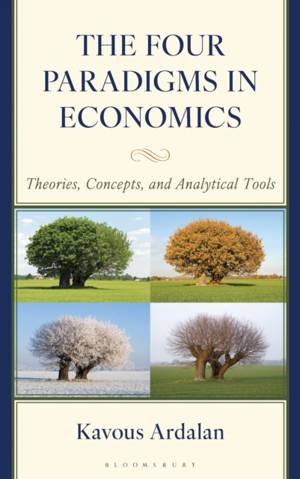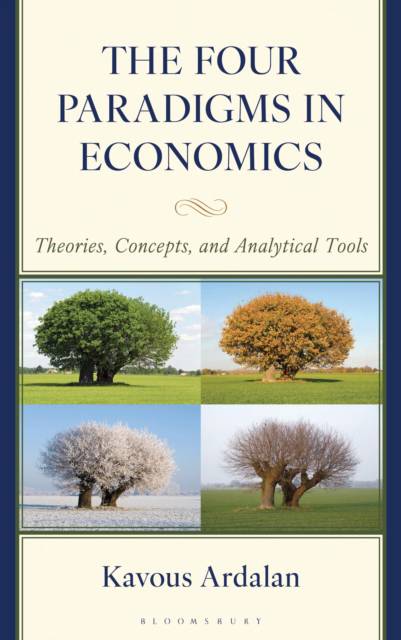
- Afhalen na 1 uur in een winkel met voorraad
- Gratis thuislevering in België vanaf € 30
- Ruim aanbod met 7 miljoen producten
- Afhalen na 1 uur in een winkel met voorraad
- Gratis thuislevering in België vanaf € 30
- Ruim aanbod met 7 miljoen producten
Zoeken
The Four Paradigms in Economics
Theories, Concepts, and Analytical Tools
Kavous Ardalan
Hardcover | Engels
€ 203,95
+ 407 punten
Omschrijving
In The Four Paradigms in Economics: Theories, Concepts, and Analytical Tools, Kavous Ardalan demonstrates how these four paradigms explain any economics phenomenon differently, and therefore, together they provide a broader and deeper understanding of the economic phenomenon under consideration. The main theme of The Four Paradigms of Economics is that social theory can usefully be conceived in terms of these four key paradigms: functionalist, interpretive, radical humanist, and radical structuralist. The four paradigms are founded upon different assumptions about the nature of social science and society, and therefore, provide different explanations of any phenomenon. The book also looks at the major prevailing schools of thought in economics (Neo-Classical Economics, New Institutional Economics, Behavioral Economics, Austrian Economics, Post-Keynesian Economics, Institutional Economics, Social Economics, Radical Economics, and Marxist Economics) from the point of view of the four paradigms and locates them within the four-paradigm framework.
Specificaties
Betrokkenen
- Auteur(s):
- Uitgeverij:
Inhoud
- Aantal bladzijden:
- 290
- Taal:
- Engels
Eigenschappen
- Productcode (EAN):
- 9781666977844
- Verschijningsdatum:
- 2/10/2025
- Uitvoering:
- Hardcover
- Formaat:
- Genaaid
- Afmetingen:
- 152 mm x 229 mm
- Gewicht:
- 557 g

Alleen bij Standaard Boekhandel
+ 407 punten op je klantenkaart van Standaard Boekhandel
Beoordelingen
We publiceren alleen reviews die voldoen aan de voorwaarden voor reviews. Bekijk onze voorwaarden voor reviews.








